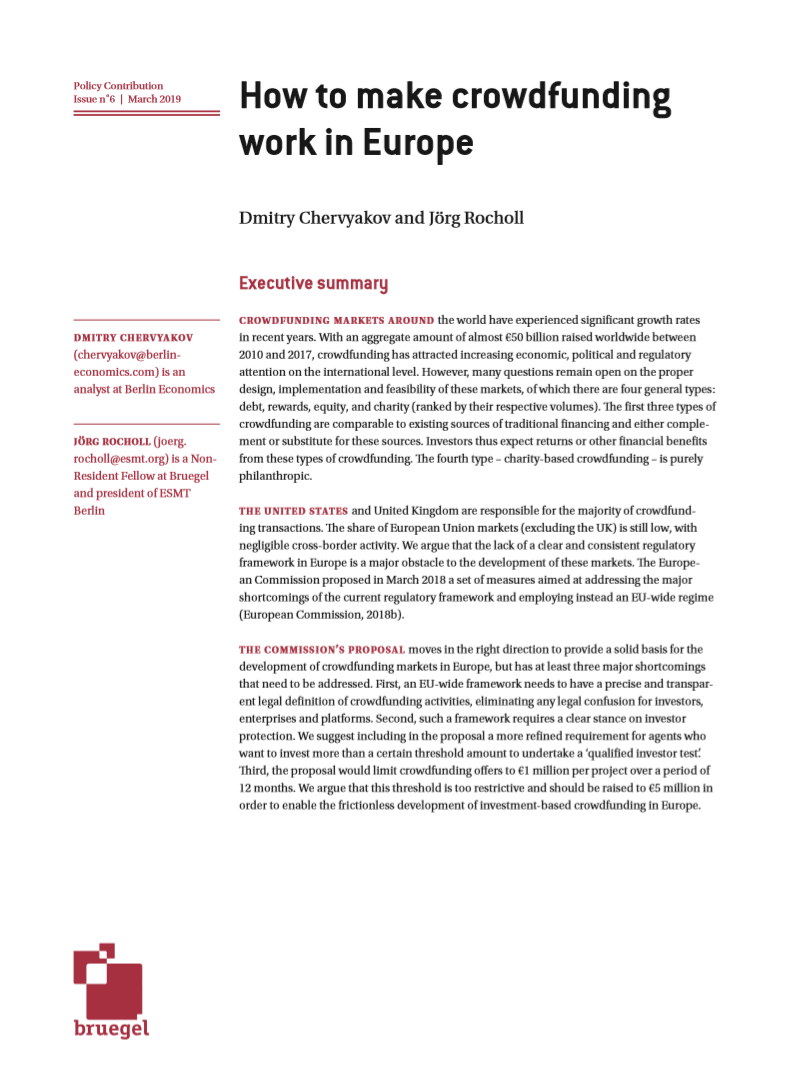Policy Contribution
How to make crowdfunding work in Europe
Crowdfunding markets around the world have experienced significant growth rates in recent years, but many questions remain open on their proper design, implementation and feasibility. The authors here analyse the European Commission's proposal for the EU-wide development of crowdfunding markets, address its shortcomings, and provide policy recommendations.
Crowdfunding markets around the world have experienced significant growth rates in recent years. With an aggregate amount of almost €50 billion raised worldwide between 2010 and 2017, crowdfunding has attracted increasing economic, political and regulatory attention on the international level. However, many questions remain open on the proper design, implementation and feasibility of these markets, of which there are four general types: debt, rewards, equity, and charity (ranked by their respective volumes). The first three types of crowdfunding are comparable to existing sources of traditional financing and either complement or substitute for these sources. Investors thus expect returns or other financial benefits from these types of crowdfunding. The fourth type – charity-based crowdfunding – is purely philanthropic.
The United States and United Kingdom are responsible for the majority of crowdfunding transactions. The share of European Union markets (excluding the UK) is still low, with negligible cross-border activity. We argue that the lack of a clear and consistent regulatory framework in Europe is a major obstacle to the development of these markets. The European Commission proposed in March 2018 a set of measures aimed at addressing the major shortcomings of the current regulatory framework and employing instead an EU-wide regime (European Commission, 2018b).
The Commission’s proposal moves in the right direction to provide a solid basis for the development of crowdfunding markets in Europe, but has at least three major shortcomings that need to be addressed. First, an EU-wide framework needs to have a precise and transparent legal definition of crowdfunding activities, eliminating any legal confusion for investors, enterprises and platforms. Second, such a framework requires a clear stance on investor protection. We suggest including in the proposal a more refined requirement for agents who want to invest more than a certain threshold amount to undertake a ‘qualified investor test’. Third, the proposal would limit crowdfunding offers to €1 million per project over a period of 12 months. We argue that this threshold is too restrictive and should be raised to €5 million in order to enable the frictionless development of investment-based crowdfunding in Europe.








